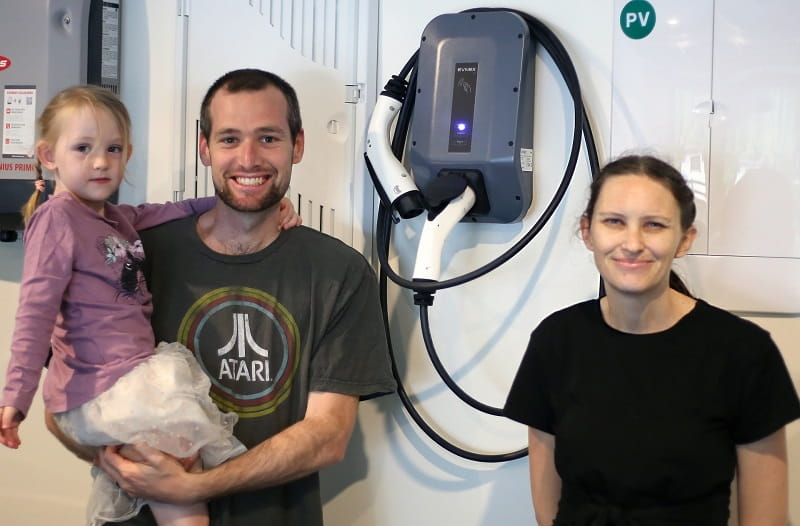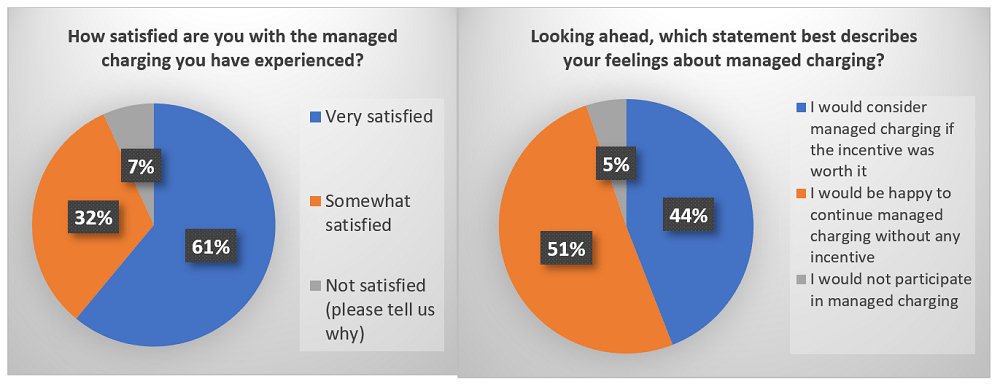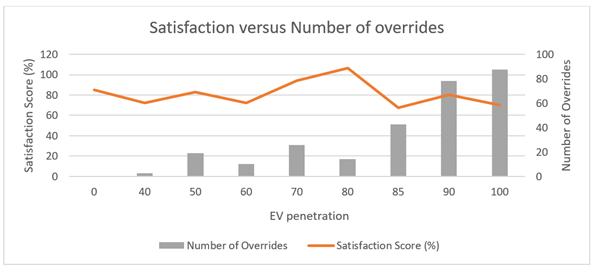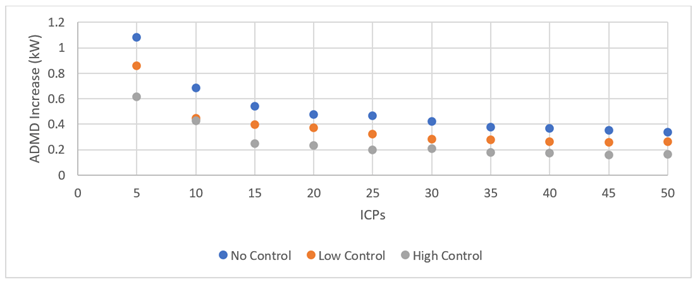Smart EV charging project

Project participant Shane McClure and his family with the Evnex EV charger.
From 2021-2023, we collected data on how Kiwis charge their electric vehicles at home so that we can prepare our electricity network for an EV future.
As more and more Kiwis use EVs, it’s important that we understand their behaviour and preferences around charging, so that we can make sure our electricity network can properly support them, particularly around times of peak loads.
To help get some insights, we launched a Smart EV Charging Project in late 2020. We recruited 80 EV drivers from across our electricity network and installed Evnex EV smart charging units into their homes. We use these chargers to collect information about participants’ charging habits and see their impact on our electricity network.
Over the course of the three-year project, we hope to learn:
- When and how often participants charge their EVs
- How they feel about managed charging (this is when Powerco controls when and how much their EV charges, with the aim to reduce network congestion, customer costs and carbon emissions).
- What impact EV charging has on peak times, with and without managed charging
Powerco’s Technology and Innovation Engineer Hugo King says the information collected from this project will help us prepare for and meet the future network requirements.
“In 2020, we saw a 23% increase of EV use on our Powerco network. It’s important that we plan for the impact this growth will have on our network.
“If in 20 years, many of our customers have an EV charging in the garage each night, we may need to make significant changes to our network to maintain energy efficiency and ensure our network can support this additional load. This project aims to answer what these network changes may look like.”
The project is already providing some useful insights. For the most part, management of EV charging has been unobtrusive; as of a project survey in April 2022, 93% of participants have been satisfied with their managed charging experience. Although 38% of people felt their EV not charging as much as they expected, 95% of participants are willing to continue with EV managed charging in future.

Additionally, participants have not adapted their EV charging habits in response to managed charging. Although participants have the ability to override Powerco’s managed charging via the charger app, in the survey 90% of participants said they did not use this function regularly (and 70 % did not use it at all). This again shows that managed charging is not significantly interfering with peoples use of their EV, and that smart charging of EVs can be easily adopted with little interference in people’s lives.
After managed charging
We began to address the level of satisfaction by throttling - reducing the amount of power to the charger by 40 to 100%, to help manage peak demands on our network.
While participants still had the ability to override and turn off the throttling when they wanted to, the number of overrides matched our expectations, showing a relative linear increase as we began to increase the level of throttling:

We also analysed the effect that EV chargers could have on our electricity network, represented by the increase in power of ADMD (After Diversity Maximum Demand) needed for distribution transformers. This analysis is now being used to inform our LV strategy, to assist how we support our customers.

Many project participants have given supportive and positive comments in response to the trial:
- “It has been great having the faster charging unit and the project has had no negative impact on my car use. Easy to be involved and great being able to participate.”
- “I haven't noticed any managed charging happening so have been surprised. It has had no impact on my charging/driving.”
- “Thanks for making it easier to manage charging of two cars!”
- “I have appreciated the reliability of the charger”
- “We are very happy with the project so far”
- “The support has been fantastic. Top marks to Hugo.”

